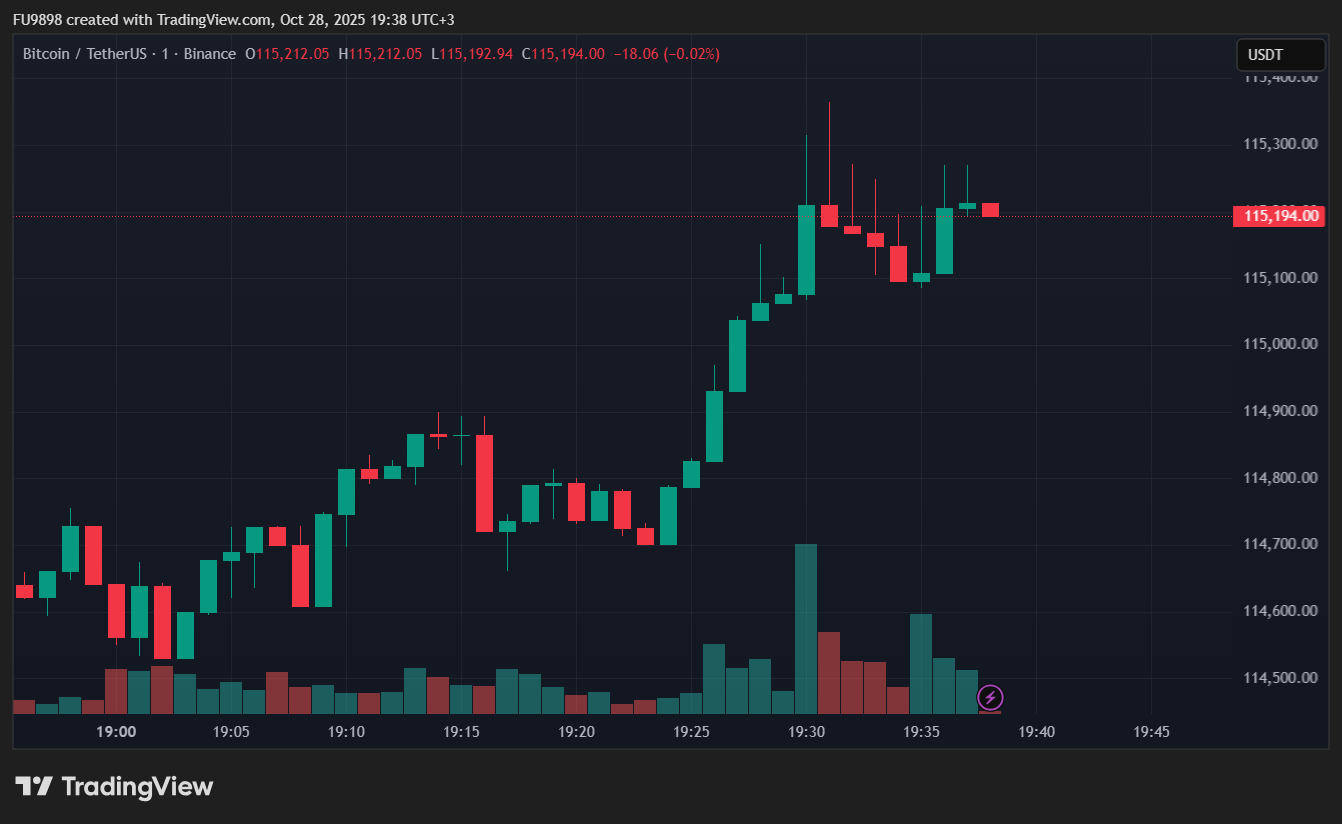US President Donald Trump and Chinese President Xi Jinping are expected to meet on Thursday to discuss reducing some tariffs on chemicals used in the production of fentanyl in exchange for China tightening export controls.
According to sources close to the matter, the two countries are working on a trade agreement within this framework.
China is expected to increase controls on exports of precursor chemicals used in the production of the synthetic opioid fentanyl, which has been blamed for hundreds of thousands of overdose deaths in recent years. In return, the US could reduce its current 20% fentanyl-related tariff on goods originating from China to as little as 10%.
 Chart showing the movement following the development in BTC price.
Chart showing the movement following the development in BTC price.
Details of the agreement, which has not yet been finalized, will be finalized in further negotiations following the leaders' meeting. If the tariff reduction is implemented, the average tariff rate on Chinese imports will drop from 55% to 45%. This could make Chinese goods more competitive in the US market.
The Trump administration signed two trade agreements and two framework agreements with countries in the region this week to prevent China from shipping its goods to the US at low prices through Southeast Asian countries. Tariffs approaching 40% on Chinese goods could discourage Chinese manufacturers from shipping their goods indirectly.
A delegation led by US Treasury Secretary Scott Bessent and senior Chinese negotiators reached an agreement on a trade framework over the weekend. Bessent described the agreement as “very successful.” Under the agreement, China will also commit to purchasing significant amounts of soybeans from the US. This move could provide relief to American farmers harmed by China's retaliatory tariffs imposed on the US at the beginning of the year.
Bessent told CBS News that China is also expected to postpone new export restrictions on rare earths by one year. This development would effectively eliminate Trump's threat to impose 100% tariffs on Chinese goods as of November 1.
The parties also reportedly reached a preliminary agreement on mutually reducing port fees and export controls. Chinese Vice Minister of Commerce Li Chenggang said, “We have reached preliminary agreements on issues such as export controls, mutual customs duties, fentanyl cooperation, expansion of bilateral trade, and port fees. Both sides will undergo internal approval processes.”
Li described the current trade tensions as “the kind of volatility they don't want to see.”
*This is not investment advice.